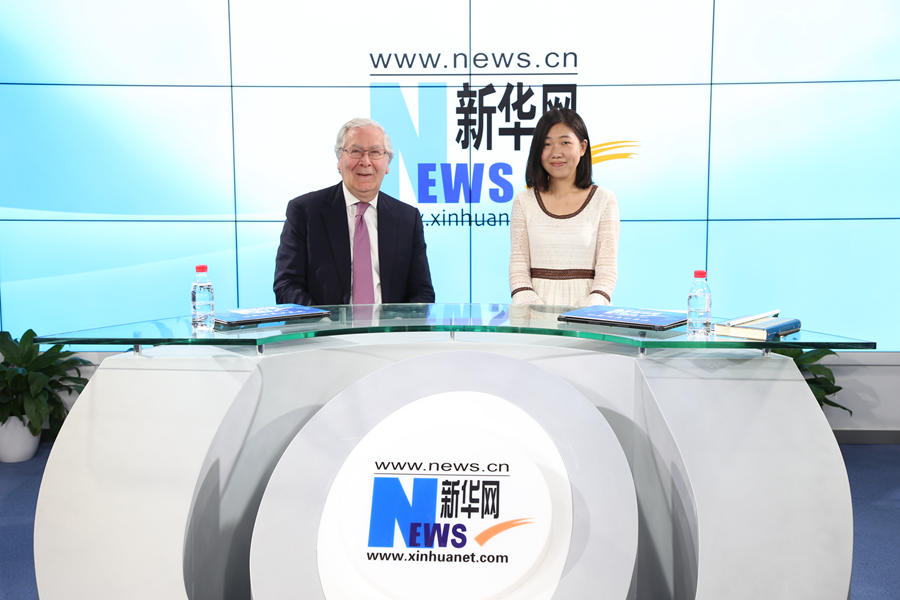
Mervyn King, former governor of the Bank of England, gives studio interview to Xinhuanet on Jan. 12, 2017. ( Xinhuanet/Peng Ying)
by Zhang Dongmiao
BEIJING, Jan. 23 (Xinhuanet) -- Major economies need to make big changes in economic structures to generate rapid economic growth, said Lord Mervyn King, former governor of the Bank of England during a recent studio interview with Xinhuanet.
Scientists and people working in technology are producing wonderful new ideas in the world, which would boost productivity in the future, he said. “But they won’t be converted into products, and growth in our economy, unless we can change the structure of our economies to allow these to be absorbed”.
Different countries require different reforms but structural reforms to support a shift in the pattern of spending and production are necessary in each case, he added.
“It’s not just for China to adjust, but also for the United States, United Kingdom, and particularly Europe ”, he noted, suggesting that the only way to a prosperous global economy is simply that "we all change".
In the case of China, the shift should be from exports to domestic spending, while for the United States, it is the other way around, from domestic spending to export, he explained.
“One of challenges facing the world now is the strong U.S. Dollar is actually not very supportive of the need to shift spending in the United States from consumption to export”, he added.
To explain the importance of structural reform for major economies, Lord King took China as an example. Hailing China’s economic performance in 2016 as a “pleasant surprise for many”, he said China’s economic performance so far has been very reassuring, indicating that China is adjusting to the challenges posed by global financial crisis.
However as China couldn’t separate itself from the world, the sluggish global economy is still a big challenge for her.
“The financial crisis in 2008 means that the amount for export from China by the rest of the world, particularly in Europe, fell quite sharply”, he said.
“So China has to to adjust to a new world in which it can not expect the rest of the world to support growth in China by buying export from China. Trade will still continue, but for the future, for the next ten to twenty years, the secret has got to be to rely more on domestic spending”, he added.
He said there are two challenges to stimulate domestic spending in China: the first is to reduce excess capacity, shifting resources from some sectors to others; the second is to incentivize people to spend more.
“I think the shift to the Two Child Policy rather than the One Child Policy is quite an important step in that direction. Putting in place a safety net for those people who might otherwise try to save too much would also be a stop forward”, he suggested.
China’s Belt & Road Initiative is very important as part of the supply side reforms to promote trade and prosperity across the world, he held.
“China should play a leading role, to essentially encourage the major economies to learn to trust each other, and try (to) make these changes according to some common timetable”, he said.
To address the stagnation in world economy during the post-financial crisis era, he suggested that restoring public trust in the banking system is key.
In his new book "The End of Alchemy: Money, Banking, and the Future of the Global Economy", he urged central banks to undertake bold reforms and to become “pawnbrokers” for all seasons to provide liquidity in times of crisis.











